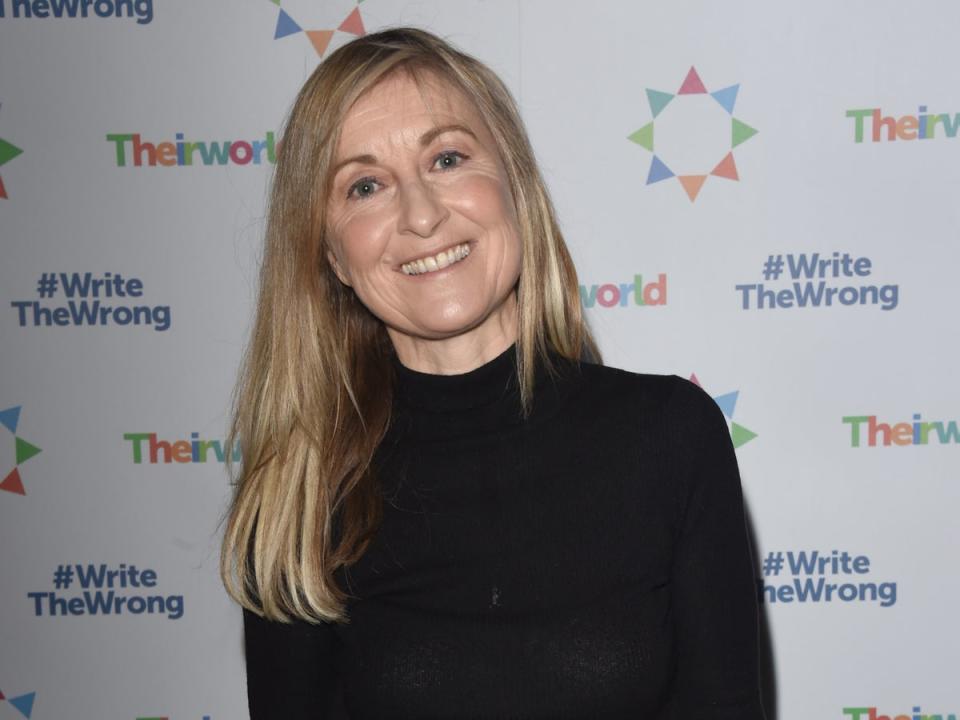Fiona Phillips explains why she hid Alzheimer’s diagnosis from her children

Fiona Phillips has explained why she temporarily hid her Alzheimer’s diagnosis from her two sons.
The former breakfast TV presenter, 62, was told she had the condition 18 months ago after she experienced symptoms of anxiety and brain fog, and has since disclosed her diagnosis to the public.
Phillips, who is currently taking part in a drug trial that scientists hope could revolutionise the treatment of the incurable illness, said she was speaking out about her diagnosis in a bid to end the stigma surrounding Alzheimer’s.
The journalist, best known for presenting the ITV Breakfast programme GMTV Today, toldThe Mirror that she was reluctant to tell her two sons, Nat, 24, and Mackenzie, 21 – who she shares with her husband, This Morning boss Martin Frizell – about her condition.
“I just didn’t want to make a big thing out of it where we all sit down as a family and announce we’ve got something to tell them,” she said.
“And I was worried they might be embarrassed in front of their friends or treat me in a different way. And it’s not like I’m doing anything out of character.”
Phillips, who took part in BBC’s Strictly Come Dancing in 2005, shared that she and Frizell had blood tests to check whether their children could inherit the disease.
“We wanted to know in case we needed to prepare the boys to make some difficult decisions later in life”, Frizell told the publication.
“When the results came back as negative it was a huge moment – such an enormous sense of relief. There’s no Alzheimer’s on my side of the family and thank goodness it seems the boys have not inherited from Fiona’s side of the family.”
The mother-of-two has now spoken out about the realities of the condition.
“There is still an issue with this disease that the public thinks of old people, bending over a stick, talking to themselves,” Phillips said.

The presenter said that she is no longer allowed to drive but walks each day: “I’m still here, getting out and about, meeting friends for coffee, going for dinner with [my husband] and walking every day.”
The news comes as the Office for National Statistics said that dementia and Alzheimer’s disease were the leading cause of death in the UK in 2022.
The couple began to notice something was wrong when she developed “crippling anxiety” towards the end of 2021. Since Phillips had not experienced this before, they thought it might be menopausal symptoms.
“We got in touch with a menopause specialist who took her under their wing and put her on HRT but while that improved some symptoms, the brain fog remained,” Frizell said.
This prompted the couple to seek further help, including months of cognitive tests before a lumbar puncture to assess spinal fluid revealed she had Alzheimer’s.
Phillips is taking a new drug called Miridesap, which scientists hope could slow or even reverse the illness.
The drug is administered three times a day with tiny needles and is being trialled by the University College Hospital (UCH) in London. Phillips has no idea if she is among the cohort reviewing a placebo or not but still believes that partaking in the trail is important for eventually finding a cure for the disease.
“Even the people we see for the check ups don’t know if Fiona is on the real drug or a placebo,” Frizell said.
“It’s been weeks now and I like to think her condition is stabilising but I am too close to know really, that could just be my wishful thinking.”

 Yahoo News
Yahoo News 
